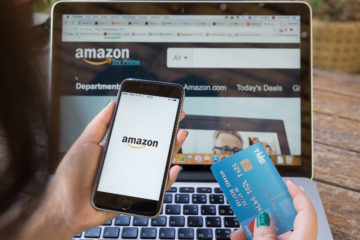In a new commentary at Real Clear Markets, John Tamny, Senior Fellow at Market Institute, critiques the Federal Trade Commission’s (FTC) pursuit of Meta, formerly Facebook, highlighting its misguided approach to competition in a dynamic market. Tamny argues that the FTC’s allegations of monopoly power overlook the essence of entrepreneurship, innovation, and market dynamics, particularly in Meta’s acquisitions of Instagram and WhatsApp. He advocates for a regulatory environment that fosters innovation and fair competition rather than hindering entrepreneurial growth.
He writes:
“More than most federal agencies today, the FTC embodies the old notion of a bureaucracy in search of a purpose. Precisely because the rather open U.S. economy is defined by relentless competition, the FTC is reduced to filing lawsuits that have no merit, but that give the impression to the gullible that the agency actually has a purpose.
Take a nearly four-year old lawsuit filed in 2020 against Facebook, now Meta. Then and now, the FTC charges that Meta has acquired monopoly power through anti-competitive purchases of Instagram and WhatsApp. The timing and cost of both acquisitions on their own obliterate the notion that either acquisition conferred monopoly status for the buyer, but let’s not start there.
Let’s begin with the basic truth that so-called “monopoly power” is the logical goal of any corporation, start-up, or both. Thankfully it is. And the reason why should be obvious. Implicit in all entrepreneurial endeavors is the view that there’s a market or service that doesn’t yet exist and that requires creation. Mark Zuckerberg, Kevin Systrom/Mike Krieger, and Jan Koum/Brian Acton didn’t start Facebook, Instagram, and WhatsApp because they felt consumers were sated, but precisely because they felt they very much weren’t.
Entrepreneurialism in the face of major skepticism is logically the pursuit of “monopoly” given the powerful belief within the entrepreneurial that existing market actors are blind to the actual needs of consumers. Put another way, no one was demanding Facebook, Instagram and WhatsApp before they were created.
Back to what obliterates the FTC’s case, let’s travel back in time to 2012 and Facebook’s acquisition of Instagram for $1 billion, followed by its 2014 purchase of WhatsApp for $19 billion. There’s your evidence that Facebook was in no way purchasing so-called “monopoly power.” Think about it. As the enormous valuations attached to successful internet-based companies attest, “monopoly” can’t be purchased for so few dollars. Which is a reminder that as opposed to Facebook having acquired “monopoly” status, it was instead competing through acquisitions to avoid obsolescence.
If readers or the ankle biters at the FTC doubt the above assertion, they might merely analyze all of Facebook’s purchases between 2012 and 2014 alone, or all of them since then. What they’ll find is that an overwhelming majority didn’t pan out, or come anywhere close to the success of the two that a “Big”-averse FTC has its eye on. Which is another reminder of just how baseless the FTC’s case is. Precisely because Facebook was able to acquire Instagram and WhatsApp so “inexpensively” twelve and ten years ago, the purchases didn’t rate much attention from – you guessed it – the FTC. Which is a short way of saying that its bureaucrats only notice always ephemeral market dominance after the fact. Indeed, if those in the FTC’s employ could spot dominance ahead of time, they wouldn’t be at the FTC. And they wouldn’t be simply because they’d be earning billions in return for their prescience as investors.
All of which brings us to the very notion of “monopoly” in the first place. The latter presumes the existence of “pricing power” that is exercised by said monopolist. So, while the concept of “pricing power” is theoretical instead of real as is given the happy fact that investors most reward businesses that push down prices (like Meta) as opposed to those that jack them up, let’s assume for the purposes of this write-up that the concept is real. If so, the FTC’s case becomes if possible, even flimsier. See Meta. As opposed to it having raised prices as a consequence of its alleged monopoly power, Meta charges its users zero.
Bringing the absurdity of the FTC’s case to a close, a Lina Khan-led FTC since 2021 has become even more brazen in pursuit of the mirage of big, impregnable and monopolistic in business. We’ve seen this with efforts to block Meta’s purchase of Within, all based on Khan’s belief that successful acquisitions in the so-called “Metaverse” space will aid Meta in its “ultimate goal of owning the entire Metaverse.” Except that neither Within, nor Meta, nor anyone in the technology space knows whether Within will realize the value that Meta hopes, or if the so-called “Metaverse” will ever be worth “owning” as is. Much as Instragram and WhatsApp were bold speculations about the future way back when, so are Meta’s acquisitions now rather intrepid – but wholly uncertain – attempts to find a future that is the embodiment of opaque.”


